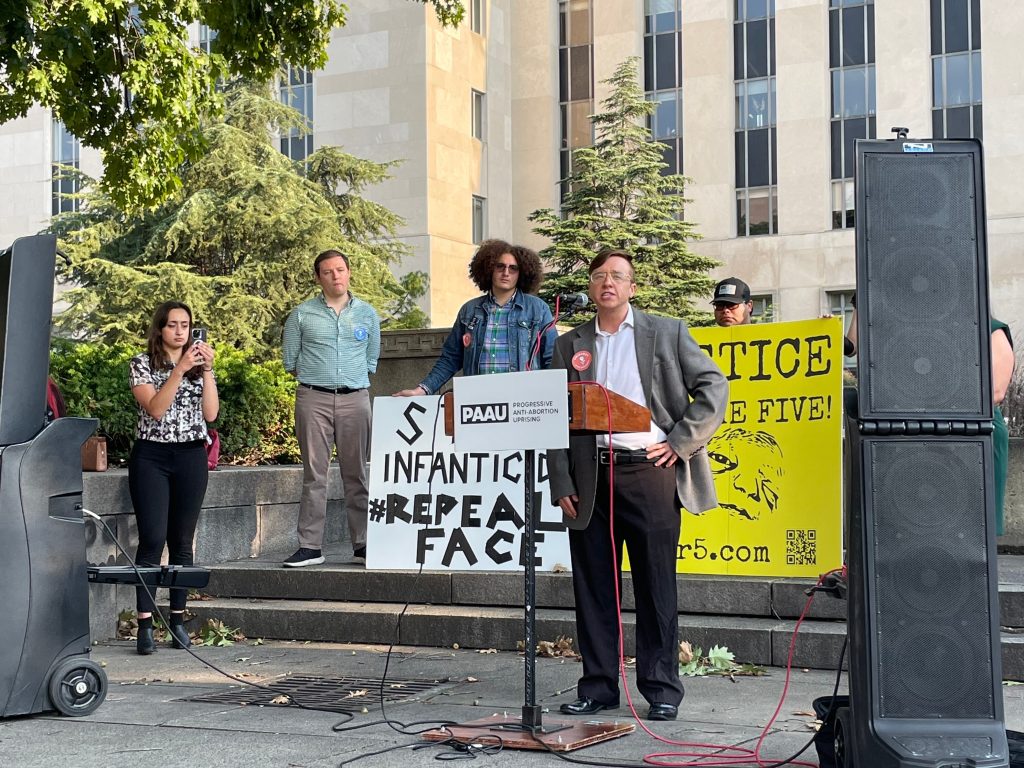Challenges of Selecting an Impartial Jury for Abortion Trials
In a pivotal federal courtroom, a diverse range of potential jurors revealed their connections to the complex issue of reproductive rights. Many openly admitted to supporting Planned Parenthood, participating in historic abortion rights demonstrations, or having strong personal beliefs on the matter, influenced by religious convictions.

This unfolding drama marks the fourth day of jury selection for a trial that revolves around the blockade of a District abortion clinic by a group of anti-abortion activists in 2020. This trial, anticipated to span three weeks in the esteemed U.S. District Court in Washington, zeroes in on the crucial topic of abortion access. Specifically, it aims to determine whether those on trial violated the Freedom of Access to Clinic Entrances Act, a pivotal 1994 law that prohibits threats and obstruction of individuals seeking reproductive health services or those providing these services.
The challenge of finding impartial jurors who can set aside their strong emotions about abortion has been laid bare, particularly in the wake of the Supreme Court’s decision to overturn the fundamental right established in Roe v. Wade. The courtroom tension has been amplified by a lead defendant’s controversial involvement with obtaining fetuses, a claim contested by the medical waste disposal company. Jury selection, which commenced on Wednesday, will eventually lead to the opening statements from both the prosecution and defense.
Such intensity in the courtroom even led to a defense attorney alleging that a potential juror engaged in a shouting match with anti-abortion activists outside the courthouse. An advocate of the anti-abortion cause reportedly distributed leaflets intended to sway the jury, prompting the judge’s intervention. Another defense attorney unsuccessfully argued that being employed by a Democratic congresswoman would disqualify a juror, while another potential juror expressed negative opinions about the lead defendant based on media coverage.
During the course of this trial, jurors will hear testimonies from clinic employees and patients who had appointments at the clinic on the day of the blockade. These accounts form a crucial part of the prosecution’s case, demonstrating the consequences of the incident. One nurse was injured, and the patients experienced profound trauma, as revealed in court records.
U.S. District Court Judge Colleen Kollar-Kotelly underscored the essence of the trial, emphasizing that it’s not solely about the abortion issue per se but rather about ensuring access to these vital reproductive health services.
Recent polling data from this month indicates that only a mere 16 percent of U.S. adults view abortion as a minor concern. This figure represents a record low in CNN polling data dating back to 1996. Among the majority of U.S. adults who disapprove of the overturning of Roe, a substantial 78 percent believe that federal politicians are not doing enough to safeguard access to abortion.
The passage of the Freedom of Access to Clinic Entrances (FACE) Act by Congress was a reaction to mounting blockades at abortion clinics, as well as instances of violence targeting these clinics, their providers, and patients. Tragically, in 1993, the nation witnessed the fatal shooting of abortion provider David Gunn outside his Florida clinic, a shocking event that prompted the enactment of this legislation.
While the FACE Act faced significant neglect during the Trump Administration, Attorney General Merrick Garland has now pledged to leverage it as a means of preserving the right to access abortion clinics. A successful prosecution under the FACE Act has the potential to dissuade activists from resorting to more extreme measures. In this specific case, the defendants, including individuals such as Lauren Handy, John Hinshaw, Heather Idoni, William Goodman, and Herb Geraghty, face the possibility of a maximum sentence of 11 years in prison, along with three years of supervised release and a fine of up to $350,000 if convicted.
Legal historian Mary Ziegler, an expert on the anti-abortion movement at the University of California at Davis, reflects on the current landscape, acknowledging the recent “Dobbs” decision and the absence of a nationwide abortion ban. This void in the legal landscape, combined with deeply-held beliefs, might be fostering a climate where some individuals are inclined to take matters into their own hands.
The prosecutors’ case contends that the defendants, including those named above, employed chains and ropes in October 2020 to obstruct the Washington Surgi-Clinic. It’s noteworthy that a separate trial will be initiated at a later date for additional defendants facing charges stemming from the same blockade.
In essence, this trial represents a pivotal moment for reproductive rights, legal precedent, and the ongoing struggle for abortion access. The outcome will not only impact the individuals involved but also send a broader message about the sanctity of clinics offering vital reproductive health services.



